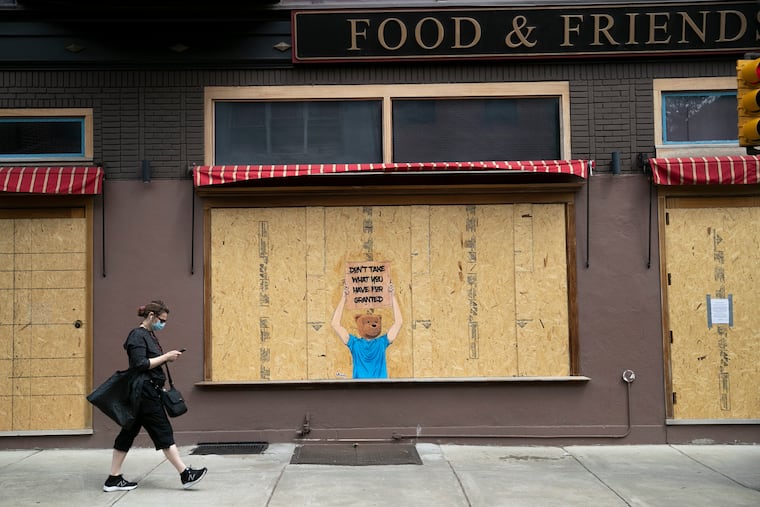Instead of recounting votes, it’s time for Harrisburg to jump-start Pa. businesses | Opinion
While businesses teeter on the verge of collapse, the General Assembly continues to focus on legislation aimed at making it harder for many Keystone residents to vote in 2022, writes Jabari K. Jones.

Every community across the Commonwealth of Pennsylvania feels just a little emptier than it did last year.
No matter which of the 67 counties you live in, you can think of at least one business that has closed for good during the COVID-19 pandemic. Whether it was your favorite restaurant, the event space you got married in, the child-care provider you sent your kids to, that community bookstore, the place where you got your first job, or that boutique clothing retail shop, every community feels more vacant. Once thriving commercial corridors now have empty buildings and for-rent signs in the place of cherished small businesses.
The economic effects of the pandemic aren’t over. But rather than focusing their efforts on economic recovery, some legislators have decided to spend precious time and resources debating the winner of the 2020 election. This is unfortunate, given that many small businesses still teeter between recovery and collapse. When communities lose businesses, jobs are lost forever, communities lose services, and public confidence in government is diminished.
» READ MORE: Bolstering commercial corridors is a vital part of rebounding from COVID-19 | Rebuilding Philly
Our commonwealth faces significant pandemic-created challenges. Over 116,000 households have been disconnected from utilities because of past-due bills. Pennsylvania still has a 6.4% unemployment rate, well over the national average. Labor shortages have put stress on workers in industries like hospitality, manufacturing, mining, and entertainment to keep up with demand. Shipping and transportation delays have created month-long backups at Philadelphia ports, preventing companies across the commonwealth of all sizes from accessing new inventory and questioning how customers will be able to buy gifts for their loved ones this holiday season. Hundreds of millions of dollars in aid due to damage from Hurricane Ida continues to go undistributed. Costs of doing business continue to rise as raw materials like lumber, oil, and gasoline become more expensive. Entire Pennsylvania industries are on the verge of collapse.
Eight months ago, the federal government sent Pennsylvania a lifeline, the American Rescue Plan Act, which granted our state $7 billion in flexible funding to address pandemic-created issues. Unfortunately, the General Assembly has not even begun to debate how these dollars can help Pennsylvania’s businesses and residents.
» READ MORE: How small businesses can survive another COVID-19 lockdown
Instead, the General Assembly continues to focus on legislation aimed at making it harder for many Keystone State residents to vote in 2022. The blitz of actions includes wasting time in over 25 hearings debating a 2020 election outcome that was certified twice, stripping the voter’s choice of choosing a lieutenant governor, introducing voter ID laws that historically have been a tool to make it harder for Black and brown people to vote, and attacking Act 77 (which passed with unanimous Republican support in 2019), which allowed people to vote safely and securely during the pandemic.
The legislature is also sending subpoenas to counties as part of an election audit that will empower legislators and a for-profit company to have access to private voter information like your Social Security number and address. The audit is expected to cost counties like Philadelphia $40 million to conduct. That’s $40 million that could be spent on rent relief, utility help, or funding businesses to get out of debt.
One of the constituencies most impacted by the government’s lack of action — the business community — has largely remained silent. As the president of West Philadelphia’s largest business association, I know that businesses typically stay out of controversial issues, like voting and election security. But the risks of inaction are too high. The desire for recovery is not controversial nor partisan. Neither is the idea that democracy is the outlet that residents use to influence the direction of our commonwealth and hold legislators accountable.
Jabari K. Jones is the president of the West Philadelphia Corridor Collaborative, a West Philly business association cochairing the PA Getting Back to Business Campaign with Business for America